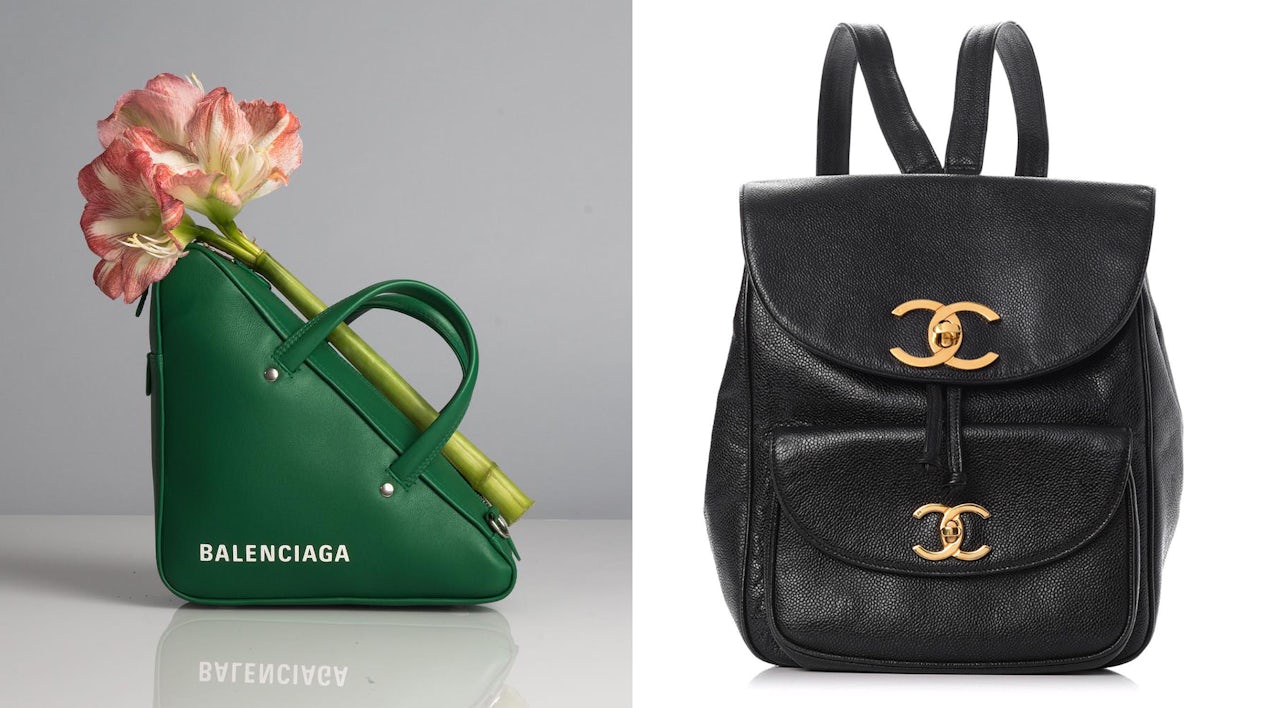DALLAS, United States — When Neiman Marcus said it had bought a stake in online secondhand store Fashionphile earlier this week, it became the first major retailer to claim a stake in fashion’s fast-growing resale market. It likely won’t be the last.
According to resale site ThredUp, the global market for secondhand apparel totalled $24 billion last year and is slated to exceed the size of fast fashion retail by 2028. Most retailers and brands still hold sites like The RealReal and Vestiaire Collective at arm’s length (case in point would be Chanel‘s lawsuit against the former late last year). The concern is that resale will dilute the aspirational branding of a luxury label.
But this attitude is quickly shifting as the secondary market becomes hard to ignore. Millennials and Gen Z, the generations driving the resale trend, are gaining spending power by the day. The stigma that once clouded the grey market no longer exists as these young consumers prioritise sustainability and clean fashion.
“The world is really evolving and the notion of sustainability is very important for the customer, so for us to be present in that conversation is to have access to that customer intelligence,” said Neiman Marcus Group chief executive Geoffroy van Raemdonck, pointing to the data that Fashionphile would be able to share with the retailer on its customers, who are younger than Neiman’s typical cohort.
The world is really evolving and the notion of sustainability is very important for the customer, so for us to be present in that conversation is to have access to that customer intelligence.
Popular resale services today are typically either consignment or peer-to-peer platforms, which means the seller must wait until their item is purchased by a consumer before receiving payment. In the case of peer-to-peer sites, they’re also responsible for posting photos, item descriptions, interaction with potential buyers and shipping.
Fashionphile buys items upfront from the seller. Under the new partnership, select Neiman stores will have Fashionphile “salons,” where customers can go to sell their luxury handbags and jewellery and receive immediate payment. The decision for Neiman Marcus to invest in resale, according to Raemdonck, came out of a customer survey the retailer conducted last year, which found that half of its shoppers were shopping on resale sites but were dissatisfied by the available services.
“The frictionless experience is that when customers come to Neiman Marcus, a Fashionphile ambassador will host you in a salon,” Raemdonck told BoF. “They will authenticate the product and give you a price. And you can leave with the fruits of that transaction and then you can choose to reinvest in fashion at that moment.”
Fashionphile is projected generate $200 million in revenue this year, according to sources familiar with the company.
You can leave with the fruits of that transaction and then you can choose to reinvest in fashion at that moment.
Neiman may have been the first retailer to officially enter the race for resale market share but others are undoubtedly scrutinising the space. Farfetch, for instance, already offers a vintage section and has incubated start-ups focused on the circular economy. It’s actively considering further opportunities in this space, the company told BoF last month.
The RealReal, Vestiaire Collective and Rebag — the biggest players in luxury resale — are all exploring their own ways to partner with retailers and brands in the primary market.
“We’re at a tipping point in the resale ecosystem,” said Charles Gorra, founder and CEO of Rebag, a luxury handbag resale service similar to Fashionphile. “Ultimately, and sooner than you think, all the luxury brands and all the retailers and all the luxury platforms will be involved in the resale space in one format or another.”
We’re at a tipping point in the resale ecosystem.
According to Andy Ruben, the founder and CEO of Yerdle, it’s imperative for brands to remain in control over their image when they engage in resale. His company’s pitch is that it can provide a backend system for brands to offer resale services at their own websites and stores. For example, a brand could offer shoppers store credit for turning in worn items, which could then be resold.
Yerdle currently works with Eileen Fisher and Patagonia, and will unveil partnerships with several contemporary fashion brands this year. Patagonia, which signed on with Yerdle last year, now expects its resale segment to account for a double-digit percentage of its overall sales by 2023.
“When something is so disruptive, when customers change how they shop, retailers and brands need to evolve their model,” Ruben said. “A step like [Neiman Marcus’ investment] where a retailer acknowledges the change is a good step. But a bigger opportunity is to evolve the business model to actually keep the customer within the brand.”
Ruben points to the emergence of e-commerce, and how the easiest way for brands to launch online sales was initially through wholesaling with Amazon and other third-party online platforms.
The lack of luxury online enabled sites like Farfetch and Net-a-Porter to disrupt the market.
“The lack of luxury online enabled sites like Farfetch and Net-a-Porter to disrupt the market,” he said. “Like e-comm, resale is not the kind of thing where you send your loyal customers to someone else. You want to serve the customers from inside your brand.”
For Neiman Marcus, its partnership with Fashionphile is still nascent.
The shop-in-shop Fashionphile salons will be rolled out to five to seven Neiman Marcus locations in the fall, Raemdonck said.
“There are many legs to this partnership, many paths we can explore and we’re open to partnerships with our brands … I don’t know where this all unfolds because the market is moving fast but we’re clearly moving [with it] and at the forefront of it.”
